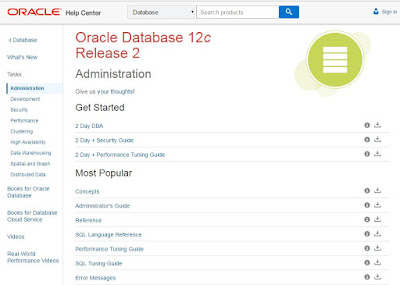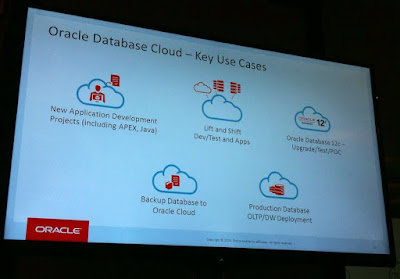If you are an Oracle DBA (at least Oracle DBA in a typical company with IT department), can you think of your responsibilities?
You can easily Google the term "typical Oracle DBA works" and will get tons of results. I just pick up one from the
top search result. From its "
Oracle DBA Responsibilities" list, you will find lots of works done by Oracle DBA is to "create", "maintain", "install", "backup", "support" Oracle databases. I will also add "configure", "patch", "upgrade", etc.
Another chart below can also demonstrate the current "Top DBA Challenges" although the survey was a little bit old.
So, in the coming cloud era, what will be changed for the role of DBA? As said in "
Cloud Considerations for DBAs",
cloud "
can alleviate the need for the administrator to install, configure, and provision the database. This enables the database to scale as needed." In other words, Oracle DBA will work less on the
administration of Oracle database, at least the typical works of Oracle DBA.
Does it mean the companies will not need any Oracle DBAs if they build Oracle on the cloud?
About 5 years ago, Oracle Guru
Julian Dontcheff already wrote an article -
The role of the DBA in the Private Database Cloud. His point is "
The cloud will bring more challenges and need for DBA work to the enterprise."
Another recent article -
Key Challenges Facing the Modern Database Administrator from Gerardo Dada, Vice President, Database Product Marketing and Strategy, SolarWinds gave more clear answers to the above question: "the cloud, DevOps, and other shifts in technology are making the entire IT department more application-focused. In the end, applications are what matters to the business and to end users. This means
DBAs are being held accountable for application performance, not only database performance."
In the end, what will you do as an Oracle DBA in the cloud era?
Oracle has some answers for you too.
When moving to the Oracle Cloud, Oracle DBA will need to understand:
- The overall architecture of the Oracle Database Cloud,
- How to migrate to the cloud,
- How to create an instance,
- How to configure connections,
- How to back up and recover databases in the cloud,
- How to use Cloud DBA tools.
For sure, the above list is not enough. As an Oracle DBA, your goal is to
deliver better application performance (yes,
application performance). So you will:
- Be proactive and align behind end-user experience as a shared objective across the entire IT organization by looking at application performance and the impact that the database has on it continuously, not only when it becomes a major problem.
- Measure performance based not on an infrastructure resources perspective, but on end-user wait times. Wait-time analysis gives DBAs a view into what end-users are waiting for and what the database is waiting for, providing clear visibility into bottlenecks.
- Keep the stability of databases just as other infrastructure teams or cloud providers striving on stabilizing their networks, hardware, software, etc.
Oracle runs to Cloud, where will DBA go? DevDBA. I replace the "Ops" to DBA in the popular word "DevOps".







 8.
8. 7.
7.

